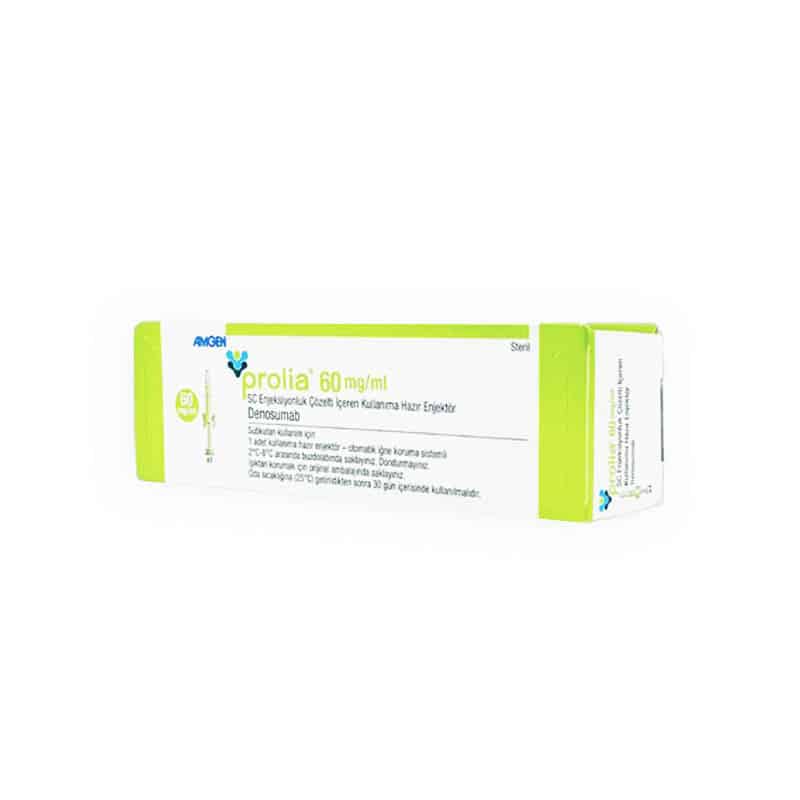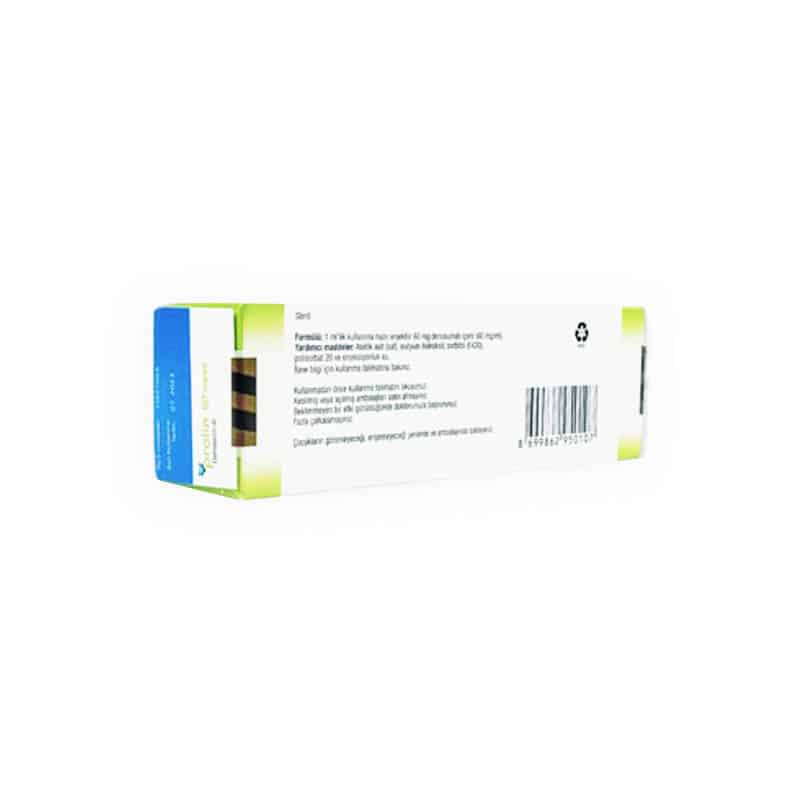PROLIA® Indications for Use
PROLIA® (denosumab) is an injectable medication used to treat osteoporosis in individuals at high risk for fractures, particularly postmenopausal women and men. It is also used to increase bone mass in patients undergoing treatments for certain cancers that cause bone loss.
Key Indications:
- Treatment of osteoporosis in postmenopausal women with high fracture risk.
- Increase in bone mass in men with osteoporosis at high risk for fractures.
- Bone mass preservation in individuals on hormone therapy for prostate cancer (nonmetastatic) and breast cancer (nonmetastatic).
- Increase in bone mass for patients using corticosteroids (e.g., prednisone) that induce bone weakening.
PROLIA® Dosage Information
PROLIA is administered as a subcutaneous injection. Each prefilled syringe contains 60 mg of denosumab in a clear solution and is intended for single use. The recommended dose is 60 mg administered once every six months.
Dosage Summary:
- Dose: 60 mg injection every 6 months.
- Administration method: Subcutaneous injection in the upper arm, thigh, or abdomen.
- Patients must take calcium and vitamin D supplements throughout treatment to avoid the risk of hypocalcemia (low calcium levels).
PROLIA® Side Effects and Precautions
Like all medications, PROLIA can cause side effects, ranging from mild to severe. Patients should be aware of the most common side effects as well as rare but serious conditions related to the medication.
Common Side Effects:
- Muscle pain, joint pain, and back pain.
- Redness, swelling, or bruising at the injection site.
- Skin infections (e.g., cellulitis), sometimes requiring hospitalization.
- Eczema or other skin reactions.
Serious Side Effects:
- Severe low blood calcium (hypocalcemia): Symptoms include muscle spasms, twitches, and numbness in the hands, feet, or around the mouth.
- Osteonecrosis of the jaw (ONJ): A severe bone condition involving the jaw, often related to poor dental health or dental surgery.
- Atypical femoral fractures: Unusual thigh bone fractures, possibly occurring without injury.
- Multiple vertebral fractures: Occurring after discontinuation of PROLIA, particularly in patients with a history of spinal fractures.
Precautions:
- Pregnant or breastfeeding women should not use PROLIA due to potential harm to fetuses and infants.
- Patients with hypocalcemia (low calcium levels) should correct their calcium levels before beginning treatment.
- Dental check-ups are recommended before starting treatment, as dental issues may increase the risk of osteonecrosis of the jaw.
- Do not use PROLIA if you are also receiving XGEVA®, another denosumab product used at a different dose for cancer patients.
PROLIA® Clinical Studies or Real-World Outcomes
Clinical studies have shown that PROLIA is effective in reducing the risk of fractures in postmenopausal women with osteoporosis, as well as improving bone density in men and individuals undergoing hormone therapy for certain cancers.
Efficacy Results:
- In a clinical trial, PROLIA reduced the risk of vertebral fractures by 68%, hip fractures by 40%, and nonvertebral fractures by 20% in postmenopausal women with osteoporosis.
- Significant increases in bone density were observed at the spine and hip after 1 to 2 years of treatment.
Patient Satisfaction:
- High satisfaction was reported due to the convenient dosing schedule (once every six months) and notable improvements in bone health.
PROLIA® Drug Interactions
There are minimal drug interactions with PROLIA, though certain conditions or medications require caution.
Important Drug Interactions:
- Calcium supplements: Patients must take calcium and vitamin D to maintain safe blood calcium levels.
- No significant interaction with drugs metabolized by cytochrome P450 enzymes was observed, meaning that PROLIA does not significantly alter the metabolism of other common drugs.
PROLIA® Aftercare Instructions
After receiving PROLIA, patients should follow the prescribed aftercare to maximize efficacy and minimize the risk of side effects.
Post-Treatment Care:
- Ensure continued calcium and vitamin D supplementation to prevent hypocalcemia.
- Patients should monitor for signs of infections, particularly cellulitis, and seek immediate medical attention if symptoms develop.
- Patients undergoing dental procedures should notify their dentist of their use of PROLIA and may need to consult their healthcare provider before proceeding.
- Regular follow-up visits to monitor bone density and assess the risk of fractures.
What to Expect:
- Some patients may experience mild muscle or joint pain after the injection, which should subside within a few days.
- Skin infections, while uncommon, should be monitored for signs such as redness, swelling, or fever.
Follow-Up Treatments
PROLIA requires consistent follow-up to ensure continued protection against fractures. The usual treatment involves injections every six months, with ongoing monitoring of calcium levels and bone density.
Maintenance and Monitoring:
- Bone density tests should be conducted periodically to assess the treatment’s effectiveness.
- If PROLIA treatment is stopped, patients should immediately discuss alternative treatment options to prevent the rapid loss of bone density, which could lead to fractures.
- Patients may need annual blood tests to monitor for hypocalcemia or other complications.


